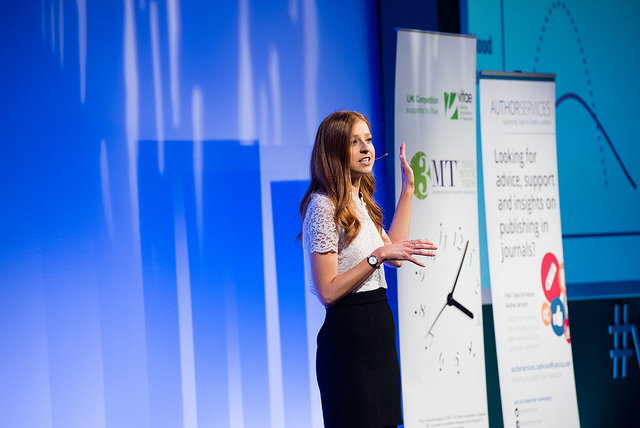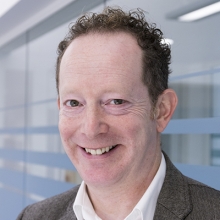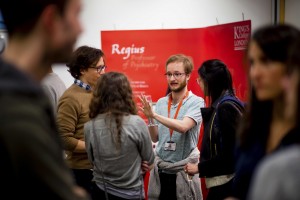Could you explain your thesis in three minutes?
King’s College London 3-Minute Thesis (3MT) is a competition open to any King’s student studying for a PhD or other doctorate.
The rules are simple: explain your research (or an aspect of it) to a non-specialist audience in three minutes. No props, sound or moving images allowed; no poems, raps, songs or mimes; only a single static PowerPoint slide is permissible. The winners will be decided by a panel of judges.
A series of Faculty heats will be held during March with two winning contestants from each heat going forwards to the King’s College London Grand Final on April 18. The winner of the Grand Final will be invited to represent the College at the 2018 UK 3MT National Semi-Finals.
Last year’s winner of the King’s 3MT competition, Emily Prpa, went on to represent the university at the prestigious National Finals in Birmingham.
Emily said: “3MT has been a fantastic route to showcase my research throughout the university and establish myself as a researcher not only at King’s but also within the wider academic community. It was a brilliant way to see the diverse range of research being conducted by my peers for their own PhDs. There was a great sense of community and support from all the students and organisers involved at the Vitae final and especially the King’s heats.”
As well as an opportunity to develop networks and your research community, 3MT offers significant opportunities to develop as a researcher:
“Representing King’s in the National final continues to benefit my personal development and research opportunities alike. I am currently presenting my research at an International Conference in Quebec, Canada, as I write this and I certainly wouldn’t have the confidence to do so if it wasn’t for 3MT.”
For your chance to get involved this year, find the heat for your faculty from the list below.
- For students in the Faculty of Life Sciences and Medicine: 22 March 3PM-5PM, Harris Lecture Theatre, Hodgkin Building, Guy’s Campus
- For students in the Faculty of Natural & Mathematical Science, the Florence Nightingale Faculty of Nursing, Midwifery & Palliative Care and the Dental Institute: 26 March 11AM-1PM, New Hunts House Lecture Theatre 2, Guy’s Campus
- For students in the Faculty of Arts & Humanities, the Faculty of Social Science & Public Policy, The Dickson Poon School of Law and King’s Business School: 28 March 3PM-5PM, Strand S-3.20 (NB. That is minus 3.20 – 3rd basement floor)
- For students in the Institute of Psychiatry, Psychology & Neuroscience: 21 March, Denmark Hill
- This heat will form part of the annual IoPPN Showcase. Contact jo.stephenson@kcl.ac.uk to participate.
Any questions regarding this year’s 3MT competition should be directed to matthew.coleman@kcl.ac.uk.


